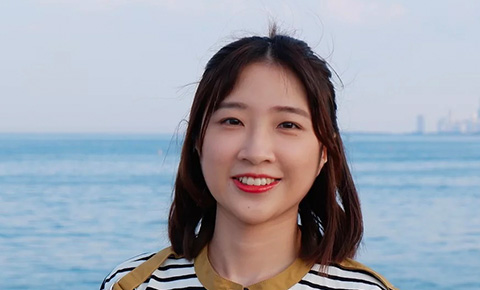Closing the Gender Gap in Computer Science

Student-run groups designed to foster a sense of belonging and solidarity among women in computer science may help boost female participation in the field, according to new Northwestern University research.
The exploratory study, coauthored by School of Education and Social Policy alumna Jue Wu (PhD21) and professor David Uttal, suggests that women-in-computing groups gave participants an identity, community, and a safe space, according to the research, published in the journal Science Education.
The supportive nature of the groups positively affected how the women saw themselves, their self-confidence and their feelings of fitting in, according to the study.
“With its loose membership structure and forward-thinking leadership, women-in-computer groups can have long term impacts and be sustainable,” said Wu, a postdoctoral scholar at the University of California, Berkeley.
Though the number undergraduates studying computer science is rising, women’s representation has steadily declined over the past few decades. Before the mid 1980s, more than 35 percent of people who received bachelor’s degrees in computer science were women, according to the National Center for Education Statistics. By 2021, the percentage had fallen to 21.9 percent.
At the same time, demand is growing, and American colleges and universities are not producing enough computer science graduates to meet the need.
Researchers, universities, and other groups have tried offering summer camps or competitions, restructuring the curriculum to attract female students with less programming experience, and designing research experience programs or learning communities that specifically target women. But while these can be effective, they are difficult to replicate at a larger scale and costly in terms of time and money, the researchers said.
As an alternative, women in computer groups were substantially less expensive and easier to expand. They are generally student run and self-organized, with the goal of building community by hosting a variety of events and programs, ranging from technical and career development events to community building experiences. The focus on participating as part of an identity vs. becoming a member seemed to make the group more effective.
“Participants saw women in computer groups as a contribution to their potential identities as computer science majors,” Wu said. “The group we studied did not have a strong or financially demanding membership structure, and we believe that this helped it to serve an important role in supporting women's participation in computer science.”
Interestingly, people who identified as men and those who self-identified as non-computer science majors attended some of the events, the researchers found. “We keep saying it's an identity,” explained a former president of the group, according to the study. “There is no membership. You don't have to come to every event… It's an identity. It's a community…”
Wu came to the US from China for graduate school to work on the underrepresentation of women in sciences. She received her master's in learning sciences at SESP and collected another one in statistics before earning her doctorate in learning sciences.
At Berkeley, her research has broadened as she works towards resolving issues related to diversity, equity, and inclusion in science, technology, engineering, and mathematics (STEM) education.
The study Diversifying computer science: An examination of the potential influences of women‐in‐computing groups was supported by Wu's dissertation year fellowship.